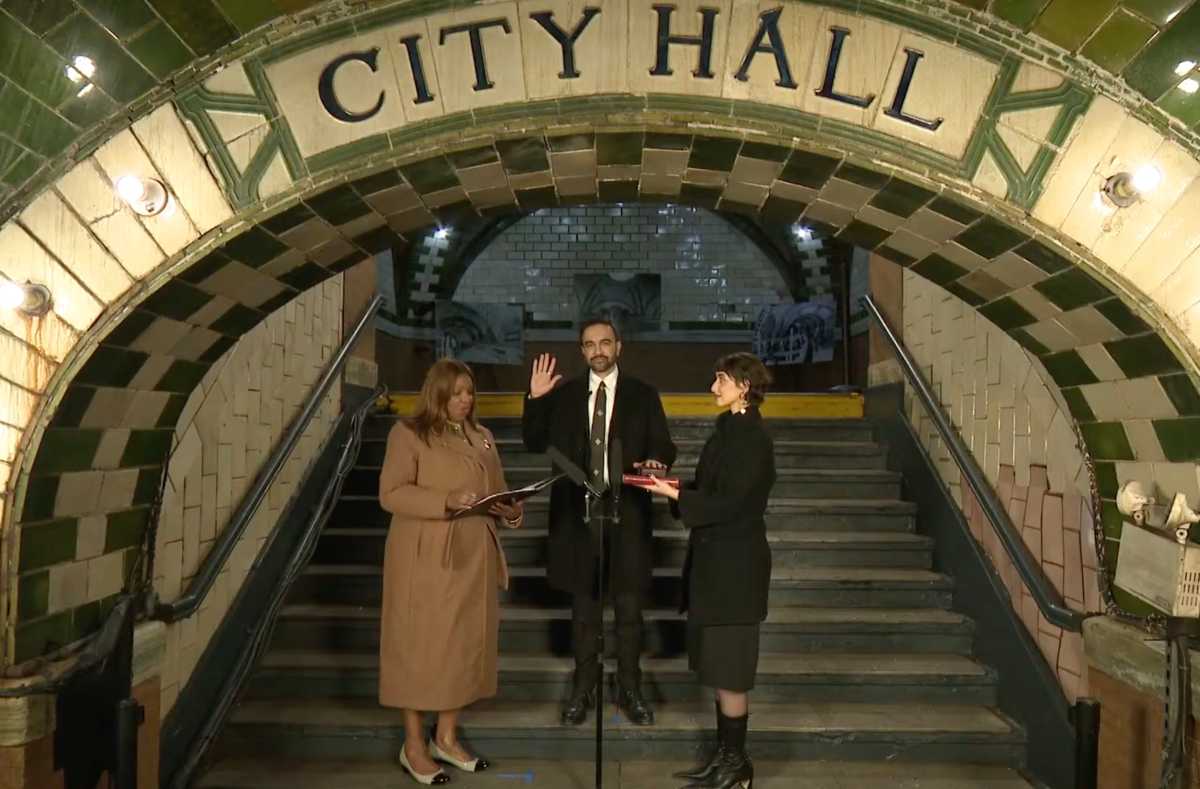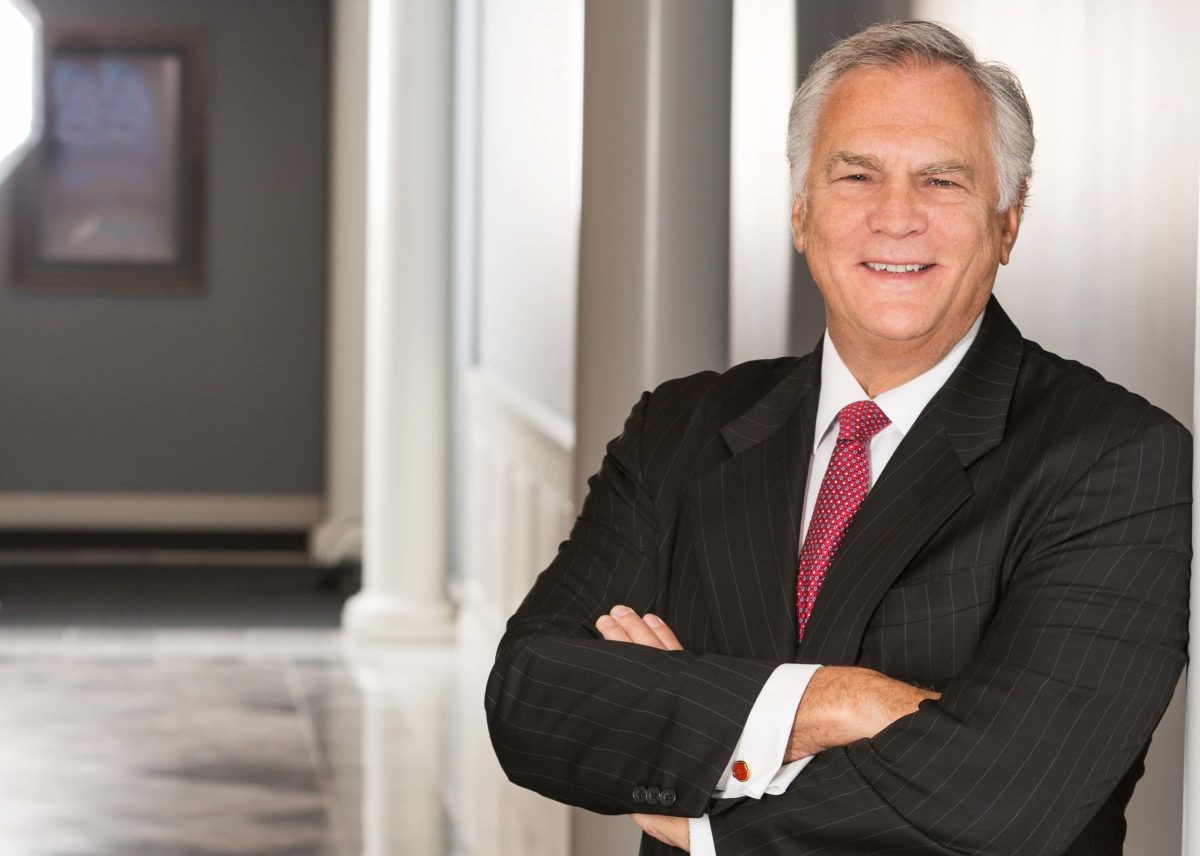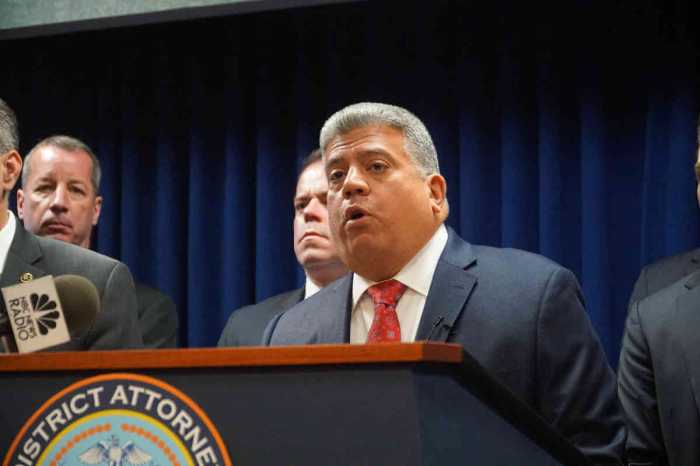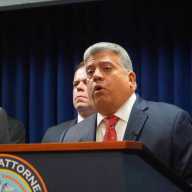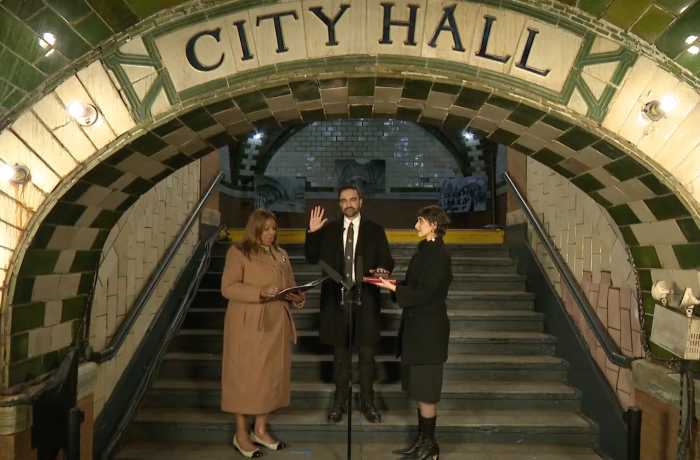With reggae music softly playing on the radio and a telephone headset strapped to his ear, dollar van driver Winston Williams scours the curbs for fares as he navigates north along Flatbush Avenue.
It’s 8:30 am — the middle of the morning rush hour — and I’m riding shotgun in his 1993 white Ford E350 Van with six other passengers sitting behind us in the 15-seat vehicle.
Williams is one of the few legal and authorized dollar van drivers [now charging $2] on Flatbush Avenue, which seems to be rampant with vans — legal or not — picking up and dropping off passengers.
“There’s one,” he says, nodding toward an elderly woman with her hand out on the curb near the corner of Avenue I. Williams pulls safely to a stop in front of the woman, who slides open the side door and takes a seat as Williams closes the door with a makeshift canvas pulley.
“Drop me at Kings Highway,” she says with a soft West Indian lilt. She is a 62-year-old woman named Veronica Bernard from Antigua who has worked as a home heath attendant for the last 10 years.
“I like the vans because they pick me up and take me where I’m going,” she says.
Winston nods while he continues driving.
“Caribbean people are accustomed to it [vans] and they like it,” said Williams, originally from Jamaica. “All the people in the vehicles are in a seat and you don’t have to stand up like they sometimes do in a bus grabbing a pole. There’s less stop and go, and we’re not locked into a designated route that we have to do.”
We proceed picking up and dropping off passengers. Williams takes dollar bills collected from fares and sticks them in a crack between the steering wheel shaft, while dropping change into a sock attached to the gear shifter.
I ask him about how some politicians have railed against dollar van drivers, and the perception that all drivers flout local driving and safety laws.
“Some politicians just don’t understand what is going on down here and they are painting the whole industry with a broad brush,” replied Williams. “It’s not all dollar van drivers that are reckless or disrespectful. They are putting everybody in one category. You can’t put all politicians in one category. All politicians are not corrupt. When you find one that is corrupt, does that make all the politicians corrupt?It’s just that individual. It’s just one individual responsible for the one vehicle he is driving. Not the vehicle that the next man is driving.”
We drive around the Grand Army Plaza traffic circle and further down Flatbush Avenue, passing the ongoing construction of the Barclays Arena, which will be home to the New Jersey Nets.
“I can’t wait for the Nets. I hope they speed up the construction. It will bring more work for me to transport more people and an opportunity for contracts,” he says.
We turn west down Livingston Street. Williams points out some of the newer buildings along the way and notes how some of the older ones will probably be torn down.
“A lot of business in this area moved out or relocated. I used to get Chase employees and workers and people from the social services agencies, but a lot of those services are moving from this area,” he said. “But new riders always come. The Brooklyn Tabernacle Church relocated downtown from 7th Avenue, and the BBQ restaurant and the Pancake House have added me more riders. Business isn’t as good as it used to be with all these illegal vans, but I’m grateful for whatever God gives me.”


